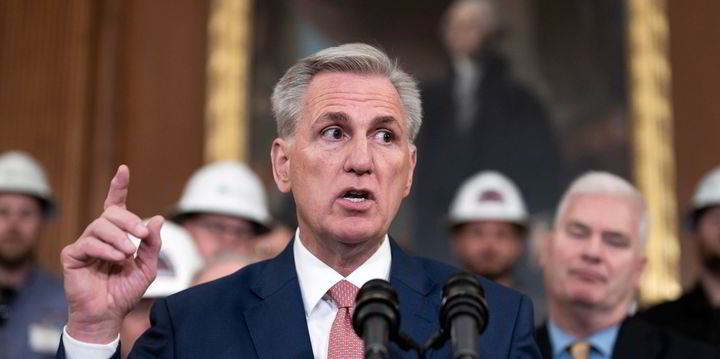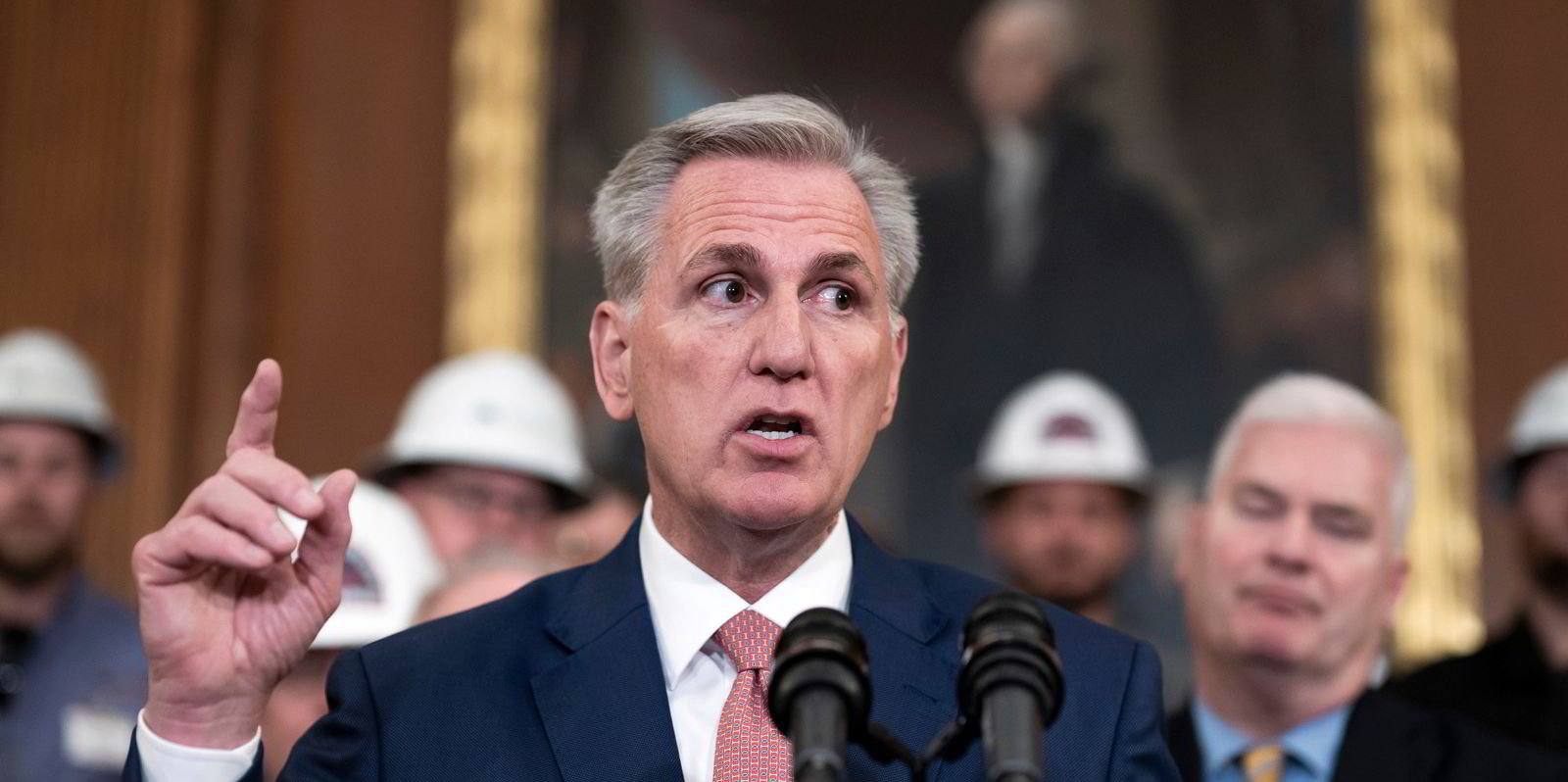The US House of Representatives passed the Lower Energy Costs Act on Thursday meaning the Republican-sponsored bill that sets out to streamline energy permitting and support natural gas infrastructure will move to the Senate.
President Biden has said he will veto the legislation if it clears Congress in its current form.
The permitting reform bill was introduced by the Republicans after they managed to throw out Democratic Senator Joe Manchin’s narrower bill on the permitting topic last year.
Speaker of the House Kevin McCarthy said the new bill has two main objectives: to reduce regulatory burdens for energy and increase domestic energy production and exports.
The bill’s proposals include:
- The Department of the Interior immediately resuming quarterly oil and gas leasing on federal lands and committing to resolve any protested issues within 60 days.
- The interior secretary granting operators requests for a suspension of operation if they are waiting for an adjacent lease sale.
- A minimum of two offshore oil and gas lease sales to be held per year in Alaska, and the Central and Western Gulf of Mexico planning areas. This does not include the Eastern Gulf of Mexico planning area or areas with existing moratoria.
- Barring the US president from establishing a moratorium on hydraulic fracturing.
- Creating a more modern and transparent process for approving cross-border energy infrastructure, including pipelines and electric transmission lines.
- Repealing all restrictions on the export or import of natural gas, except in the case of sanctions against foreign countries.
- Endowing the Environmental Protection Administration with authority to issue waivers of the Clean Air Act and the Solid Waste Disposal Act for any critical energy sources that are necessary for national energy security.
- Repealing Section 136 of the Clean Air Act in the Inflation Reduction Act to remove a direct fee on methane emissions.
- The Government Accountability Office would issue report on BLM drilling approval process, include recommendations to expedite permitting process.
Louisiana state representative Steve Scalise introduced the bill, which is seen as rolling back part of President Biden’s clean-energy agenda.
Article continues below the advert
“For the last two years, President Biden and his extremist friends in Washington have waged a war on American energy, and hard-working families across the country are paying the price. Gas and utility costs have skyrocketed to record highs, with the average American paying over 40% more for gas at the pump since President Biden took office,” Scalise said.
“Voters gave Republicans the majority in Congress to stop this radical anti-American energy agenda, and to take action that will lower prices,” he added.
Battle lines
Democrats are largely against the bill, with Biden saying the bill would replace “pro-consumer policies with a thinly veiled licence to pollute”.
“[The bill] would double the cost of energy efficiency upgrades that families need to reduce household bills and would repeal the Greenhouse Gas Reduction Fund that will cut energy costs and boost economic development in rural and urban communities across the country,” the White House said in a statement.
“[The bill] would also empower big companies to skirt the Clean Air Act by lifting pollution control requirements, weaken emissions requirements and worker protection for refineries using toxic chemicals, modify requirements under the bipartisan Toxic Substances Control Act for determining the safety of chemicals used in the energy sector, and repeal $1.5 billion in investments focused on curbing methane leaks that harm surrounding communities.”
Alaska Senator Lisa Murkowski has said, unreservedly, that Republicans rejected the bill because of objections to the Manchin-sponsored Inflation Reduction Act.
Nevertheless, the legislation has widely been deemed a success in terms of stimulating investment in clean energy and associated industries.

